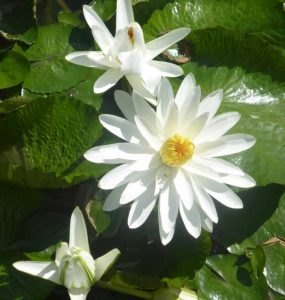
Finding Life’s Hidden ‘WOW’ Factor
I’ve had ‘visions’ for most of my life, known things before they happened and been able to intuit many things, but had no idea what

How often do we take the gifts of the world for granted?
I have just read a really beautiful book called, ‘Braiding Sweetgrass’ by Robin Wall Kimmerer1 (an academic biologist and member of the Potawatomi Nation), which has been accurately described as ‘a hymn of love to the world.’ The book evocatively entwines Native American indigenous wisdom, scientific knowledge and a celebration of the teaching of plants, to which the author urges that we need to listen. Plants are referred to as ‘non-human people’ which emphasises their importance, our connection with them and encourages us to honour them.
Wall Kimmerer passionately advocates concepts such as deep respect for plants, Honorable (sic) Harvest – not taking more than we need, thanking the plants for their gifts and supporting them in return, for example, by land stewardship and sacred ceremony of gratitude for the natural gifts of this world.
Gratitude Connects Us
The book describes that at many indigenous gatherings, thanks and respect are given for many of the world’s gifts, from water to animal life to Medicine Herbs. Each verse of the Thanksgiving Address, said aloud, ends with the response: ‘Now our minds are one’, which affirms the connection of all in the united gratitude expressed. Here is an example of one verse of this Thanksgiving Address:
We give thanks to all the waters of the world for quenching our thirst, for providing strength and nurturing life for all beings. We know its power in many forms – waterfalls and rain, mists and streams, rivers and oceans, snow and ice. We are grateful that the waters are still here and meeting their responsibility to the rest of Creation. Can we agree that water is important to our lives and bring our minds together as one to send greetings and thanks to the Water? Now our minds are one.
Beautiful!
Robin Wall Kimmerer asks: ‘Imagine if our government meetings began with the Thanksgiving Address. What if our leaders first found common ground in this way, before fighting over their differences?’
But Can Water Hear Our Thanks?
Some of you may think that thanking an element is a rather ridiculous concept. How can thanking water make a difference? It rather depends on our view of whether or not water and other elements, animals, plants, etc, are conscious of this gratitude, whether they are connected in some way to us.
Philosophical idealists believe that consciousness is all there is. David Hamilton2 writes that for idealists, consciousness is ‘not created by matter, nor is it an experience of matter. All the different forms of matter – people, animals, nature, the universe – are just different ways that we experience consciousness, or more correctly, how we experience ourselves’.
These various forms of matter are different ways that the whole of consciousness appears. They are not separate from consciousness. They are consciousness.
Interestingly, there are examples of soul energy splitting into different expressions of consciousness in the book, The Convoluted Universe – Book Three by Dolores Cannon.3 Here it is described how, when receiving regression therapy, some people remember being the consciousness of elements such as rocks, water or air in their other lives.
So, If Water CAN Be Aware of Our Thanks…
…this has HUGE consequences for us.
If everything is an expression of one linked consciousness, then our intentions towards all the different forms of matter will affect them and us. So, let’s be grateful for the bountiful fruits of our earth. Let’s shower all with positive vibrations of Love and gratitude and we will in turn benefit, as all matter is an expression of our one consciousness.
I’d like to end with another verse of the Thanksgiving Address:
We are thankful to our Mother the Earth for she gives us everything that we need for life. She supports our feet as we walk about upon her. It gives us joy that she still continues to care for us, just as she has from the beginning of time. To our Mother, we send thanksgiving, love and respect. Now our minds are one.
Su Mason PhD
Image from Pixabay by guvo59
References

I’ve had ‘visions’ for most of my life, known things before they happened and been able to intuit many things, but had no idea what

How do we know there’s Geopathic Stress and what can we do to help? In part one we looked at what Geopathic Stress (GPS) is. Let’s

What Is Geopathic Stress? Should You Be Worried About It? Stress can come from any number of sources, including life challenges and day to day activities,

Login to view your membership area